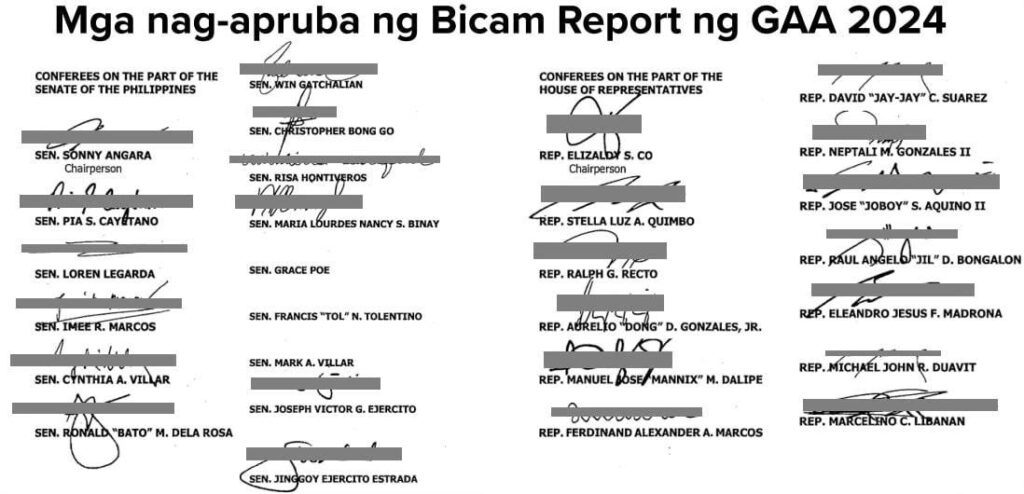Jose “Pete” Lacaba deserves more than a Gawad CCP, which he accepted on Sept. 20, 2024, the eve of the 52nd year of Marcos martial law, and for which he delivered a scathing attack on those contemplating imposing martial law anew after both Gloria Macapagal Arroyo and Rodrigo Duterte imposed it but failed to create the conditions to justify its declaration nationwide. Another Marcos is back in power and there’s no telling when a despised dictatorship would materialize.
At the Makati theater where a glittering array of businessmen, politicians, artists, writers, journalists, and cultural bureaucrats presented themselves, Lacaba delivered what many of them, including the ubiquitous lumpen culturati, did not expect him to dish out. It was a direct attack on the sponsor, on CCP itself as the enabler of the worst sins of martial law, the embodiment of the Imeldific theory of culture, and the arts as the embodiment of “the true, the good and the beautiful.”
He delivered his fusillade after paying tribute to Nick Joaquin, Bien Lumbera, Rolando Tinio, Lino Brocka and Ishmael Bernal and fellow newspapermen. “Sa panahong ito na patuloy ang EJK, red-tagging, pagpapakulong at pagdisappear ng mga aktibista, anakpawis, environmentalist, katutubo, artista, at peryodista, para sa akin, paalala ang gawad na ito na kailangan nating magpatuloy sa pakikibaka tungo sa demokrasya, kalayaan, at katarungang panlipunan. Pinapaliguan ng pabango ang malalansang mga programa ng diktador Marcos at ibinabalik ang palpak na mga programa gaya ng Masagana 99, na lalong nagpahirap sa magsasaka, at binabaluktot ng kasaysayan para sa ating Kabataan,” he spoke as the audience went shtum, including Irene Marcos Araneta, the dictator’s daughter.
“Nagkataong bukas ang anibersaryo ng deklarasyon ng batas militar—ang panahong humubog sa aking kamalayan at panulat. Ginugunita ko ngayon ang aking pinaslang na kapatid na si Eman Lacaba, isang makatang isinabuhay ang pinakamatayog na responsibilidad ng manunulat at guro. Kaya naman nanawagan ako sa kapwa mga alagad ng sining na magsalita, makialam, at makibaka. Tandaan natin ang aral ng kasaysayan at makibaka para sa kinabukasan. Never again. Never forget,” Pete counseled. Eman, who was wounded when soldiers attacked a house where he stayed, was mowed down by gunfire when he could no longer give combat. Yet his poetry about the nameless, faceless guerrillas giving their all lingers on. What the Lacaba brothers wrote, they practiced.
“Never again. Never forget (NANF)” might as well be the motto of people’s awards for those who gave not only their poetry, their literature, their journalism, their energy, and their resources, as well as their lives in the greater war to end social and economic inequity, destroy graft and corruption and ensure a just and prosperous future for the Filipino people. It is a war against human rights abuses, EJKs, enforced disappearances, the plunder of ancestral domains, and the exploitation of peasants and workers. The Lacaba fight never stopped. It gained another spark to start the prairie fire on the eve of the 52nd year of the declaration of martial law, courtesy of Pete Lacaba.
For two years, Pete suffered torture at the hands of Marcos minions, his frail body turned into a punching bag, his chest subjected to blows, and his body wasted by the return of tuberculosis, which he suffered in his younger days. Before martial law rudely interrupted his journalism, Pete reported on the First Quarter Storm instigated by the bloody dispersal of the Jan. 26, 1970 rally before the Congress building (now the National Museum) and wrote “Days of Disquiet, Nights of Rage.” He was also a union organizer. Marcos was particularly peeved with Pete after reworked Percy Bysshe Shelley’s “Prometheus Unbound,” and his poem (written with the nom de plume Ruben Cuevas) delivered the slogan “Marcos Hitler Diktador Tuta!” on the literary page of Focus magazine. Marcos operatives seized all copies of that Focus magazine and heads rolled. Focus was managed by Kerima Polotan, wife of Johnny Tuvera, a Palace bureaucrat.
At the underground Taliba ng Bayan, Pete chronicled the struggles during martial law, reporting the truth about massacres in Mindanao, Luzon, and the Visayas as the Marcos military tried to crush armed as well as unarmed resistance to martial law. Taliba ng Bayan, Liberation, Ang Bayan, Pulang Bandila and other publications became the sources of unfiltered news. They also reported on how Marcos cronies enriched themselves. It was like the Dovie Beams affair tapes being broadcast by DZUP during the Democratic Diliman Community from late January 1971 to Feb. 5, 1971. In 1976, the regime also failed to stop the publication of a review of Behn Cervantes’ “Sakada” submitted as a paper in a UP class but wound up in the city room of Evening Express. The review highlighted the exploitation of sugar workers and how famine happens right smack in a farming province. It aroused a career witch hunter who wrote a pamphlet against the review and demanded the incarceration of the author, Cervantes, and film critics Pete Daroy, Bien Lumbera, and even the cast.
The censors were caught napping again but the pamphlet raised awareness about the film and drew more viewers, far more than the few who watched the unedited version of the Cervantes masterpiece. “Sakada” led a number of films shown in 1976 that shattered Imelda’s positive spin on everything that was going bad in the country. Moreover, by the mid-1970s, “dazibao” was back, plastered in the metropolis and elsewhere to denounce martial law. BMI stickers were also stuck in buses, jeepneys, gates, classrooms and, of course, toilets. Marcos intelligence initially did not know what it meant just as it took them time to “decipher” Ruben Cuevas’ poem. “Batas Militar Ibagsak!” was a call that pestered the regime. Pete was a trailblazer and acrostics and telestich would be used as codes.




